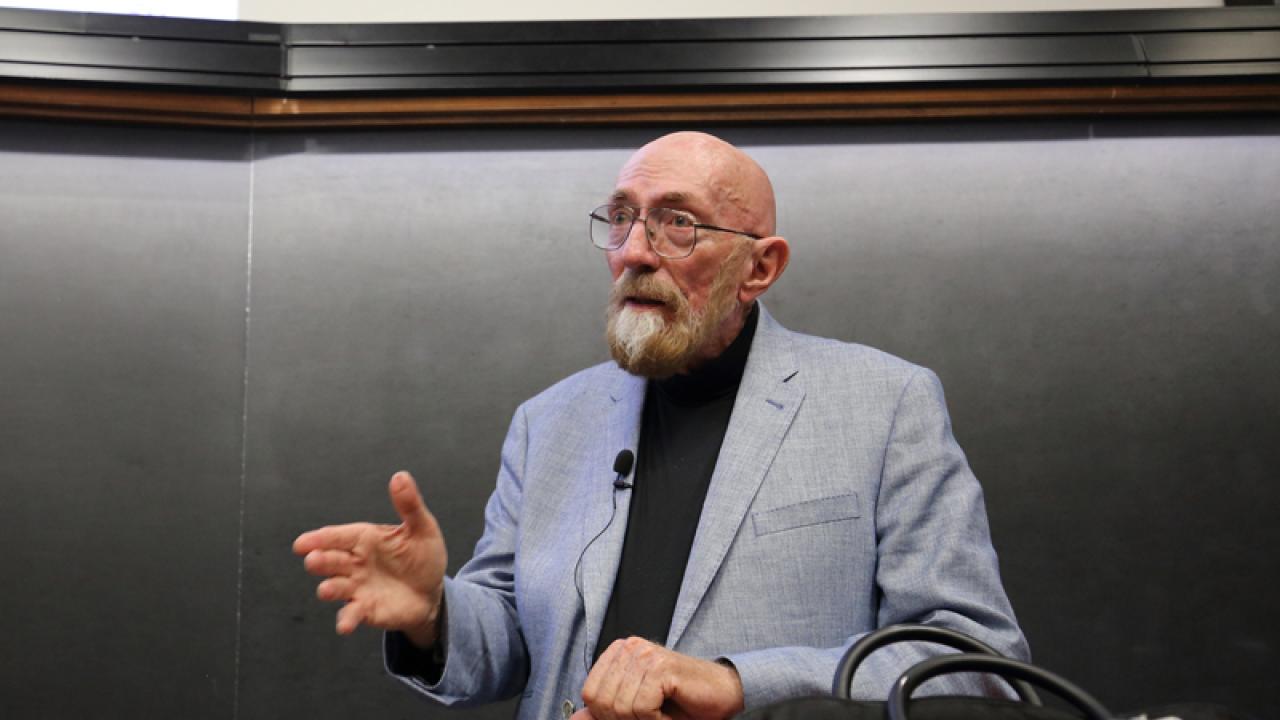
From winning a physics Nobel prize to developing the concept for a Hollywood blockbuster film, theoretical physicist Kip Thorne's expertise and enthusiasm for astrophysics has captured the minds and imaginations of millions. His research in gravitational waves contributed to their detection by the Laser Interferometer Gravitational-Wave Observatory (LIGO) in 2015, and he lent his scientific credentials as a consultant for the 2014 film Interstellar.
On Thursday 24 May, Professor Thorne brought his brand of science excitement to ICTP, where he delivered a colloquium on Geometrodynamics: The Nonlinear Dynamics of Curved Spacetime (full video available here). His talk centered on a challenge posed 50 years ago by his doctoral supervisor, John Wheeler, to explore geometrodynamics--understanding gravitation through fluctuations in geometry--by asking, how does the curvature of spacetime behave when roiled in a storm; like a storm at sea with crashing waves? "We tried to explore this, and failed. Success eluded us until two new tools became available: computer simulations, and gravitational wave observations," the talk's abstract outlines. Thorne described what these have begun to teach us, and offered a vision for the future of geometrodynamics.
Find photos from the talk here
Just before his talk, we had the chance to interview Professor Thorne, asking him about his career and his efforts in science communication:
Professor Thorne is currently the Feynman Professor of Theoretical Physics, Emeritus at the California Institute of Technology (Caltech). From 1967 to 2009, he led a Caltech research group working in relativistic astrophysics and gravitational physics, with emphasis on relativistic stars, black holes, and especially gravitational waves. He co-authored the textbooks Gravitation (1973, with Charles Misner and John Archibald Wheeler) and Modern Classical Physics (2017, with Roger Blandford), and was sole author of Black Holes and Time Warps: Einstein’s Outrageous Legacy.
Professor Thorne was cofounder (with Rainer Weiss and Ronald Drever) of the LIGO project. LIGO - in the hands of a younger generation of physicists - made the breakthrough discovery of gravitational waves arriving at Earth from the distant universe on 14 September 2015. For his contributions to LIGO and to gravitational wave research, Thorne shared the 2017 Nobel Prize in Physics with Rainer Weiss and Barry Barish. In 2009, Thorne stepped down from his Caltech professorship to ramp up a new career at the interface between art and science, including the movie Interstellar (which sprang from a treatment he co-authored, and for which he was executive producer and science advisor).
Kip Thorne books available in ICTP's Marie Curie Library
















